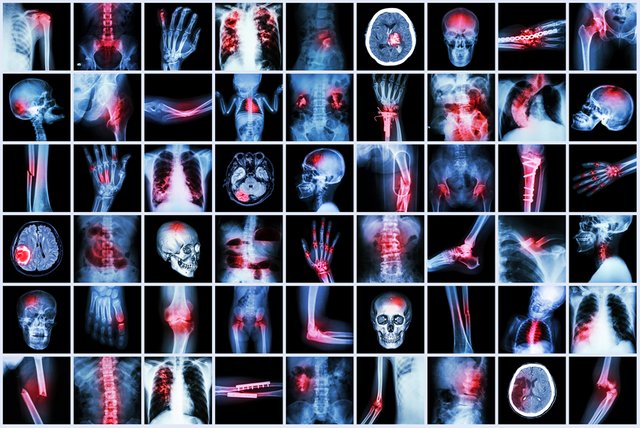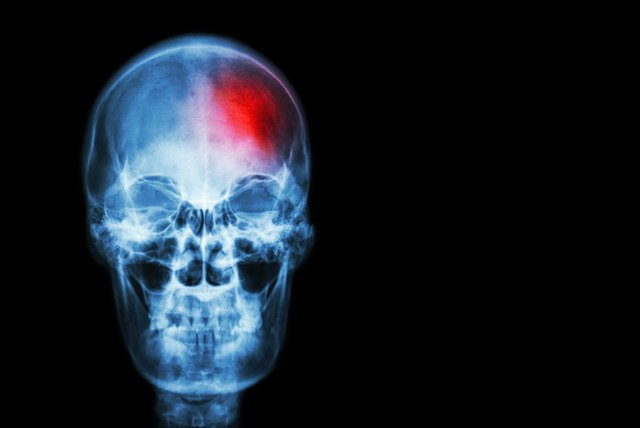Medical Jargon Buster
Introduction

When one joins a profession it is easy to lose sight of how difficult it can be for the average person to understand the words or phrases we commonly use.
We become blinded to the use of these terms due to our familiarity with them and can forget that they are not part of common language.
This applies especially to public facing disciplines like medicine but it occurs in most professional fields.
In this post I would like to cover some common words that are used medically that would be useful for patients to know.
These are words that I have personally come across people misunderstanding and often feeling too embarrassed to ask.
This is a short post but there is still the usual kitten photo at the end to reward those who make it.
Some points about health professionals

I should emphasise that if you are ever talking to a health professional or physician and they are using "jargon" which you do not understand you should never feel ashamed to ask for clarification.
You are not stupid for asking.
It is a vital part of their job to help the patient understand what is going on and to make sure that the patient understands what they are telling them.
If you don't understand then they have failed in their job NOT you as the patient.
Some notes about the definitions

I have tried to aim this at the average non-scientific person.
For this reason some of the definitions are very simplified and may not be 100% scientifically accurate so please be aware of this.
If you have a suggestion on how to explain a term more effectively or accurately please let me know. It can be difficult to strike the right balance.
Also I am using these in reference to the human body but they are terms that apply to organisms and life in general (at least in most cases).
Please feel free to add your own examples of jargon you have had issues with and I will try to answer them.
If I get enough responses I might do a follow up post to cover them.
The Words
Basic Terms and Sciences

Physiology - this is the science of how the body functions normally.
Pathology - the science of the study of disease, abnormal functioning of the body.
Pathophysiology - a combination of the two above, how the body functions during a disease or illness.
Pathogen - anything which causes disease, normally used to refer to micro-organisms but not specific to them.
Pathogenesis - the process by which a disease is created, can also mean the origins of illness.
Aetiology - the cause or origin of an illness/disease e.g. the aetiology of scurvy is Vitamin C deficiency
Prognosis - the likely outcome of a disease based on the current situation
Diagnosis - the process of figuring out what disease a patient is suffering from
Epidemiology - the science that studies disease in populations and looks at issues like distribution and disease control.
Incidence - the number of new cases of a disease in a population over a certain period of time
Prevalence - the number of cases of a disease in a population at a specific point in time
Diseases and Disease Related

Cancer - a type of disease where a particular population of cells multiplies out of control potentially interfering with the normal function of the body, note also that health professionals may not refer to something as a "cancer" unless it is malignant. To avoid confusion I will use the term to describe any kind of new growth which may proceed to become malignant.
Carcinoma - cancer.
Neoplasm - literally a "new growth" often used as an alternative term for cancers so as not to frighten patients during discussion, or when one does not want to specify if one thinks a condition is benign or malignant during discussion with colleagues.
Tumour - often used in relation to cancers but does not have to be, literally means a swelling or mass.
Malignant - usually refers to types of cancers which are acting in a life threatening manner due to their rate of growth, spread and or infiltration of other tissues, organs or systems. There is also implication of a more negative prognosis.
Benign - usually refers to a "cancer" that is slow growing and not considered life threatening. I have sometimes come across people who thought benign meant the same as malignant.
Cardiovascular - relating to the heart and blood vessels.
Cerebrovascular - relating specifically to the brain and it's blood vessels.
Myocardial Infarction - a heart attack, part of the heart muscle is deprived of blood due to a blockage of one or more of the arteries which feed it blood.
Angina - a disease in which narrowing of the arteries supplying the heart means that it is unable to get enough blood to serve it's needs, usually results in chest pain.
Heart Failure - basically a condition where the heart is unable to pump blood adequately. There are different types and multiple causes. This is not the same as a heart attack although a heart attack could lead to heart failure.

Cerebrovascular Accident - a stroke, sometimes used to refer to the bleeding type but not always, in a stroke a part of the brain is deprived of blood due to either a blockage of a blood vessel or bleeding/pressure.
Oedema - swelling of a particular tissue or body part due to water.
Lymphoedema - swelling caused by poor lymphatic drainage.
Systolic - the higher (top) figure in a blood pressure reading, refers to the pressure when the heart contracts/beats.
Diastolic - the lower reading (shown below systolic) in blood pressure, indicates the pressure when the heart is relaxed.
Antigen: a foreign body which provokes an immune response, can specifically refer to the site of immunological binding too.
Antibody: a type of protein produced by the immune system which binds to an antigen.
Idiopathic: referring to a disease where the cause is unknown e.g. idiopathic hypertension.
Essential: similiar to idiopathic - relating to unknown causation e.g. essential hypertension.
Adverse Reaction - side effect of a drug or treatment.
Sequel/Sequelae - complications of a disease or procedure
Contraindication - a situation where a treatment should never be used.
Some abbreviations that relate specifically to medication

Nocte - Latin for at night.
Mane - Latin for in the morning.
OD - (omne in die) - once daily.
BDS - (bis die sumendum) 2 times per day.
TDS - (Ter die sumendum) 3 times per day.
QDS - (quater die sumendum) 4 times per day.
PRN - (pro re nata) - as required.
PR - (per rectum) - to be taken rectally.
PO - (per orem) - by mouth/orally.
IM - intramuscular.
IV - intravenous.
SC - subcutaneously.
Rx - abbreviation for prescription, prescribing or treatment.
Stat. - (statim) - immediately.
Conclusion

This is by no means an exhaustive list. As I said please let me know if you would like me to cover or discuss any other words that you find confusing or don't understand. Also please let me know what you think. Did I get the balance between simplicity and accuracy right? Do you want me to change something?
Your Reward: Obligatory Kitten Shot

If you like my work and aren't already, please follow me and check out my blog (I mainly discuss photography but I do other topics like this too) - @thecryptofiend
I have also created a new channel in the chat dedicated to photography of people/portraits called "Photography-portraits-people". Please check it out and post your photos there.
Image Credits: All images are stock photos from my Istockphoto account.
Some of my Previous Posts and Tutorials:
- A Collected Photography Post - My Own Work (13 photographs with discussion and new edits)
- Why I hardly use Facebook anymore and prefer to spend my time and money on Steemit
- Mavericks in Science: - Progress Can Mean Standing Up to Dogma (Part 1: Marshall and Warren)
- Why Banning Drugs Doesn't Work (with illustrations by @klye)
- From Believer to Atheist (My personal journey and my problems with organised religion)
- What Happened to Individual Agency/Autonomy? TCM, Chemotherapy and Vaccination.
- The Health Benefits of Coffee
- The War on Open Science: Scientific Journals and the Research Racket
excellent post, very good development, much research congratulations
Thank you:)
Very interesting list of broken down medical terms, @thecryptofiend. There are so many different abbreviations and wordings that it's so easy for the lay person to lose sight of what means what. People usually never think about these things until a problem arise so it's good to have the knowledge beforehand.
Great article and extremely informative and useful. Good job!
Thanks. Yes. These are just a few there are too many to really list. I think everyone should really keep a medical dictionary to hand for translating things when they need to.
@skapaneas told me to follow you, I am glad he did. nice read..
Thanks:)
I will upvote the kitty. she looks like a scientist.
jokes aside. nice read!
Lol:)